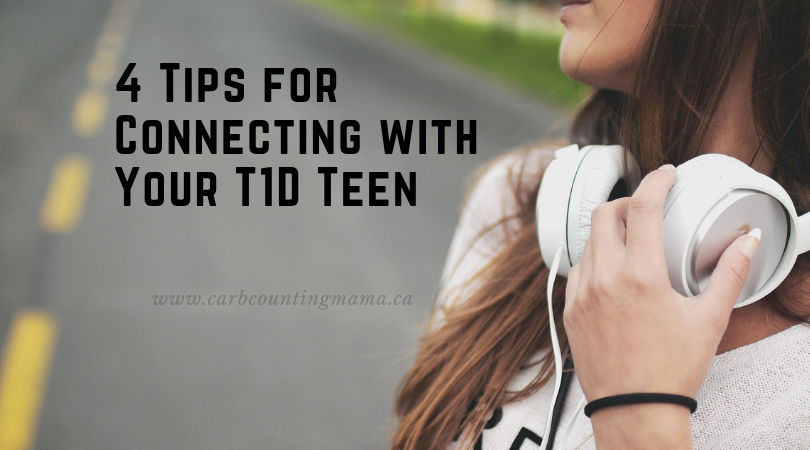The teen years. Those 3 little words are enough to scare any parent. Throw T1D in the mix and, well, you have the ingredients for a very rough ride. When your child has a life-threatening disease like T1D, you instinctively want to protect them. But everything you do seems to push you further apart. You want to help, but they usually don’t want the help you’re trying to give.
“4 Tips for Connecting with Your T1D Teen”
By: Allice K. Brownfield
I see a lot of posts from non-diabetic parents of diabetic teens and tweens. I’m really glad to see your posts because now I know how my mom felt when I was growing up.
But I’d like to share some advice that I feel will help a lot of you.
1. I know you’re frustrated when we act out and don’t do what the doctor says.
I know it’s enough to make you want to rip your hair out. But next time, before you yell and lecture, take a deep breath and ask us why.
Listen to us. We are scared. We didn’t want this. None of our friends have these issues and it’s not fair.
Don’t tell us we’re special or warriors because we just want to be normal. After you listen, help us make adjustments and work with us to stay in range while letting us be us.
2. Give us more control.
I know you’re scared. You love us. We’re your kids. But please resist the urge to helicopter parent our illness.
We’ve lost a lot of control of our own body. When you make all the decisions and don’t let us make our own choices, we’ve lost what little control we had left. It can make us feel trapped in our own skin.
Let us make mistakes and learn from them now while you’re there to help us fix it.
Because myself and many of my peers rebelled the second we were out on our own and our parents weren’t there to help. Let them learn now, they’re gonna make the mistakes either way.
Related article: The 24 Hour Plan
3. Every young diabetic, and most older ones too, are going to go through a phase.
You’re going to notice.
It’s the “I didn’t want this, I didn’t ask for this, I don’t like this and I don’t care so I’m going to pretend I don’t have this” phase.
You’re going to have to be there for them. Be understanding and help guide them through it so they don’t go into DKA. They will learn it’s not going away.
And when they do, they will be way more involved in their own care.
4. Highs and lows.
When they start acting like a moody teen… please don’t tell them to check their sugar.
It’s the worst and the majority of the time they really are just being a moody teen. Take a moment to sit down with them and ask them to tell you exactly how a high and a low feels both physically and emotionally.
You’re not going to understand, but we appreciate that you try. Lows especially are a terrifying ordeal and your teen may even try to keep high to avoid them.
Knowing how highs and lows affect your child will give you signs to look out for and the ability to ask them how they feel if you suspect something is off.
Doing these things will make your child far more likely to turn to you and confide in you about their illness which in turn gives you more room to help them.
Find more from Allice on her website: www.thespookyselection.tumblr.com to take “a journey through the dark, the creepy, the macabre, and the odd.”
What worked for you during the teen years? Share in the comments.
For more tips and stories about T1D, join the Carb Counting Mama email list, and make sure to head over to the Carb Counting Mama Facebook page and “like” it.

Erin & Josh—I am so sorry for all of you. I have so little understanding of it. Poor little guy , he will learn to manage
as he is so bright. It will be difficult for all of you, but you will deal with it as best you can. Better days ahead, surely.
.Love Gran